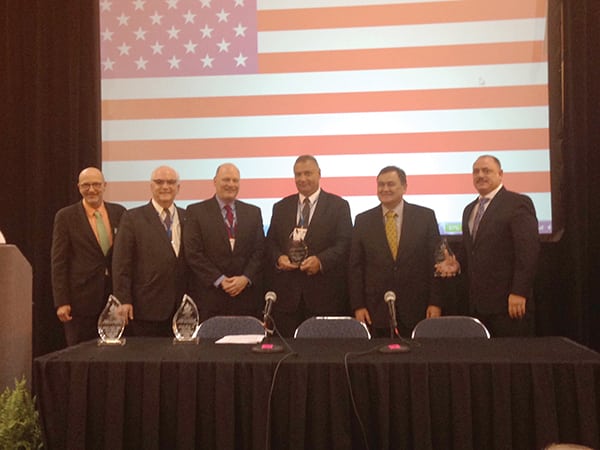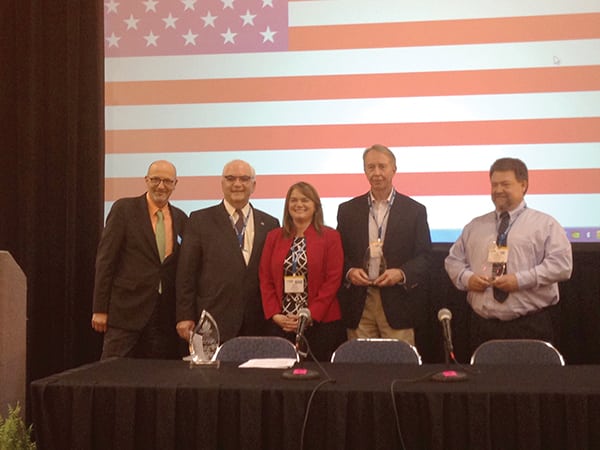Veterans Bring Needed Skills to the Utility Industry
As reports abound about the aging workforce in U.S. power plants, ex-military personnel offer battle-tested dependability and proven leadership to an industry in need of their skills.
We all know someone who either is, or was, in the military. In fact, many utility industry professionals were once in the military themselves. Personnel learn many valuable lessons in the armed forces. Teamwork, discipline, reliability, dedication, initiative, and leadership are all important traits instilled in military members. The ability to give and follow directions, get along with others, work under pressure, and conform to rules are drilled into service men and women in all branches from the day they sign on the dotted line.
In case you hadn’t noticed, many, if not all, of those traits are important in the power sector too, so when you need someone who can be counted on to do a job in accordance with detailed requirements, consider a current or ex-military member. Yes, I said “current”; many active reserve and National Guard members are working in power plants across the country and are doing a great job. Although it requires a little extra effort to schedule around weekend duty and summer drills, many companies are successfully handling that task.
During the ELECTRIC POWER Conference & Exhibition (EP) held in New Orleans in early April, the first-ever Faraday Awards were presented in the EP Theater. The awards were part of the Veterans in Power (VIP) initiative and recognized employers, programs, and partnerships that have successfully focused on elevating the careers of American veterans in the energy industry.
The awards are named after Michael Faraday, who published work on electromagnetic rotation—the principle behind the electric motor—and discovered electromagnetic induction—the principle behind the electric transformer and generator—in the early 19th century.
A Ready Resource
The U.S. Bureau of Labor Statistics reported in March that the unemployment rate for veterans who served on active duty in the U.S. Armed Forces at any time since September 2001—a group referred to as Gulf War-era II veterans—was 9.0% in 2013. With a total of 2.8 million Gulf War-era II veterans, that leaves a pool of 252,000 well-qualified personnel waiting in the wings for an opportunity to utilize their technical skills. Utilities stand to benefit, if they can find a way to tap this resource.
The Faraday Awards recognize outstanding efforts in the electric power sector to recruit, train, retain, and mentor veterans who are entering or reentering civilian careers after serving their country in the armed forces. Awards were presented in three categories.
American Electric Power (AEP) and Incremental Systems Corp. were recognized for their investor-owned utility and small business partnership—Power4Vets. Power4Vets is a workforce development training program that prepares military veterans to become North American Electric Reliability Corp. (NERC)–certified power system operators through simulation training and focused studies. It also provides coaching and mentoring for job interviews, resume preparation, and job placement assistance. Since its inception, 61 veterans have become NERC certified, 57 have transitioned from military to power industry careers, 36 have transferred from other jobs to power industry careers, and 68 have trained for, or upgraded to, better jobs in the industry.
Scott Smith, senior vice president of transmission strategy and business operation for AEP, noted that AEP employees more than 20,000 people. When it began its veterans hiring initiative, roughly 9% of the workforce was made up of ex-military personnel. Since that time, the percentage of veterans has risen to 12%.
The second award was given to Siemens Energy and Central Piedmont Community College for their Apprenticeship Charlotte program, which aims to build a pipeline of qualified employees by combining classroom and workplace learning. One unique aspect of the program is that Siemens Energy pays apprentices while they are attending classes and also reimburses them for tuition and books.
The third award was presented to Dominion Resources and the Center for Energy Workforce Development for their Troops to Energy Jobs program. The team was recognized as an outstanding example of an investor-owned utility partnership with a nonprofit organization. Troops to Energy Jobs began as a pilot program in September 2011 and launched nationally in June 2013. Dominion has hired more than 270 military veterans, which equates to about 25% of Dominion’s new hires since the program began.
“These three have really stood out, not just by success of the number of veterans hired, but their view of the program and the way that they integrate for long-term retention,” said Matt Sadinsky, CEO of Prequalified Ready Employees for Power International, who collaborated with EP to present the awards.
Making the Link
Connecting with veterans can be challenging, especially in areas of the country far from military bases. “We had a veteran’s resource center that really wasn’t staffed with veterans. It was staffed with normal college advisors, and that didn’t work. Veterans like to talk to veterans. That’s where we learned our lesson,” said Bill Dillon, associate dean for business and industry learning at Central Piedmont Community College.
“The way that you can collaborate to get the word out is by word of mouth,” Power4Vets Program Manager David Miranda said. “There [are] enough military veterans out there—in these pools that we have with great candidates—that are going to be great fits for any utility across the entire country.”
Roger Collins, technical training specialist for Siemens Energy, noted that military personnel are used to working with the latest in technology. “They come to us with a skillset that can’t be picked up in just the general population. They’re motivated to learn, they’re accustomed to being trained, they have a very good sense of duty—a good sense of purpose—that makes it easy for them,” Collins said. “They may not have the exact skills that we’re looking for, but they’re able to be trained.”
“The average age of a system operator in America is 56, and 50% of them will retire in the next three to five years,” Sadinsky said. With that kind of employee turnover looming on the horizon, utilities need to look for employment candidates who can hit the ground running. Military veterans are one resource that should not be overlooked.■
— Aaron Larson is a POWER associate editor (@AaronL_Power, @POWERmagazine).

